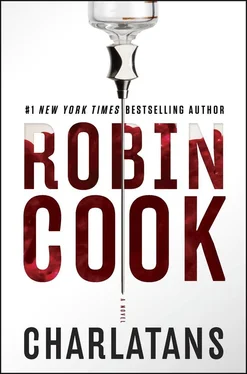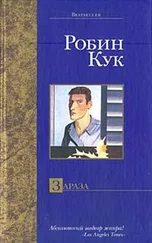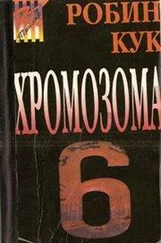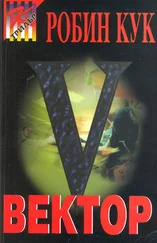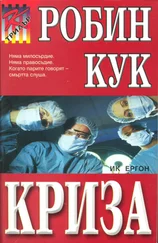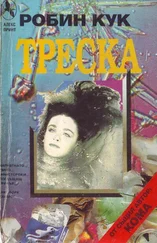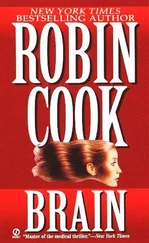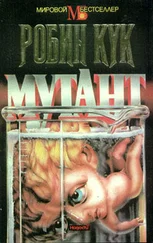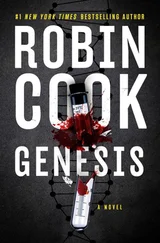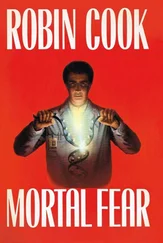“I’m almost ready,” Peter said. He and a colleague had been working furiously to prime and ready the heart lung machine. Both knew time was extremely critical, and they were trying to do in minutes what normally took an hour.
“You heard me about the heparin?” Ava asked.
“I did, but there’s nothing we can do about it,” Noah shot back. “We’ll hope for the best.”
Dawn reappeared with a liter-size bottle of cold, sterile saline. Noah advised her to go ahead and pour it over the heart while he was massaging. Gingerly, she started.
“More!” Noah urged. “The faster the heart cools, the sooner it will stop fibrillating.”
Dawn poured faster. Pouring cold saline over an exposed heart was a new experience for her, even though she had been an OR nurse for almost twenty years.
“It’s working,” Noah said. He didn’t have to look at the ECG. He could feel the fibrillation abate.
The door burst open and Dr. Adam Stevens, a cardiac surgeon, appeared. He stopped short, momentarily transfixed by the scene of a patient exposed to the waist with his chest flayed open while the circulating nurse was pouring fluid into the wound and a gloveless resident was massaging the heart. Betsy stepped off the stool she was standing on and held out a gown for Stevens, which he thrust his hands into while asking Noah for an explanation. Noah and Ava gave him a quick rundown as Betsy helped Stevens into sterile gloves.
“Okay,” Stevens said. “Let’s get him on the pump. Are you ready, Peter?”
“I think so,” Peter responded.
“Thanks for coming in, Adam,” Mason said. “I’m sorry Anesthesia has created this mess. Unfortunately, I am needed elsewhere; otherwise, I’d stay and help. Dr. Andrews is here and can lend a hand. Good luck!” With a final glare at Ava, he left the room. Only Andrews responded with a wave. Everyone else was too busy, but they had heard him.
“Hold up on the massage,” Stevens said to Noah. “It’s most likely futile, considering the oxygen saturation is so low. By the way: the cold saline was a good idea, not only to stop the fibrillation but also to wash out the wound. Now get a gown and some gloves on! I’ll put out some sterile drapes.”
A moment later, Noah was back at the opposite side of the table, joining Andrews. By then Stevens and Andrews had the two arterial cannulas, which included one for the heart, and one venous cannula in the operative field, and Stevens was beginning to implant them. He started with the arterial ones first. One went into the aorta, after which the aorta was clamped, and the second one went into the heart for the cardioplegia fluid that would keep the heart from beating and lower its need for oxygen. The final venous cannula went into the major vein leading into the heart. A few minutes later, when Bruce was fully on the heart lung machine, the blood oxygenation and blood pressure rose quickly. “I want him cooled to at least thirty-two degrees centigrade,” Stevens told Peter. Peter responded that the patient would soon be at the target, as he was already at 35 degrees and the heart at 4 degrees.
“Let us know when we can bronchoscope him,” Ava asked Stevens. By then the two anesthesiologists who’d brought in the cardiac defibrillator had left, convinced Ava had things as much under control as possible. In their place was a pulmonologist, or lung specialist, by the name of Dr. Carl White, who had come in to do the bronchoscopy and clean out the bronchial tubes.
“Go ahead and bronch him,” Stevens said. “The sooner, the better. It’s to his advantage to be on the pump as little as possible.”
The bronchoscopy went well. It was quickly determined that both bronchi had been almost totally occluded with a bolus of undigested bread, which was easily removed under direct visualization. When the blockage was gone, Ava was able to inflate and deflate the lungs with ease. “We’re good,” she said. She was pleased. The vital signs were now stable, as was the level of acid in the blood, which she had corrected earlier. She had also typed and cross-matched a significant amount of blood, which was on hand if needed, but she doubted they would need it, as there had been very little blood loss.
The mood in the OR, which had been tense, relaxed as Stevens and Noah prepared to take Bruce off the heart-lung machine after being on it for only a little more than ten minutes. At that point Ava had the patient on the ventilator with 100 percent oxygen, and everything appeared excellent, including electrolytes, acid-base balance, and vital signs. The first order of business was to warm the heart and discontinue the solution that kept the heart from beating. This was done by allowing blood at normal body temperature to flow through the heart. Next Stevens gradually undid the clamp across the aorta, which increased the blood to the coronary arteries, helping to warm the heart. At this point, Stevens fully expected the heart to begin beating, as it did in most bypass cases. Unfortunately, it didn’t happen. Undaunted, Stevens tried a series of shocks to the flaccid heart, but none worked. He then tried an internal pacemaker, but even that was unsuccessful.
“What do you think it is?” Noah questioned. He could sense Stevens’s dismay.
“I don’t know,” Stevens said. “I’ve never had a heart that wouldn’t even respond to a pacemaker after it was warmed up. It is not a good sign, to say the least.”
“There was only a few minutes between the heparin being given and the heart going into fibrillation,” Noah said. “So he might not have been completely anticoagulated. Could that be the problem?”
“I guess it is possible,” Stevens said. Then, to Ava, he added, “Let’s check the electrolytes again!” He was feeling a sense of mounting exasperation. He had tried all the tricks he knew, including having Ava give various heart stimulants and even lidocaine intravenously.
Ava drew another blood sample and sent it off.
“I don’t like this,” Stevens said after another ten minutes had passed. “I’ve got a bad feeling here. The heart has got to be in super-bad shape. How long did he fibrillate, Noah, when you were opening him up?”
“I believe just minutes. The cold saline stopped it almost immediately.”
Stevens looked over at Ava. “How about the first episode of fibrillation: How long was that?”
“I’d guess two or three minutes,” Ava said. “That was how long it took for the crash cart to get in here.” She glanced down at the anesthesia record to be sure. “Actually, it was less than two minutes. It wasn’t long, because the cardioversion occurred with the first shock.”
“That’s not a lot of time in both instances,” Stevens said. “I’m at a loss. Somehow the heart had to have been significantly damaged not to even respond to a pacemaker. We are running out of options. Also, I’ve got to get going on my own case.”
No one responded to Stevens’s last comment. Everyone knew what he was implying: Maybe it was time to give up. The patient could not be kept on bypass continuously.
The PA system came to life. “I’ve got the electrolyte results,” a female voice said. She then read them off. They were all relatively normal, without change from the first sample.
“Well, it’s not the electrolytes,” Stevens said. “All right. Time for a few more tries.”
Over the next few hours Stevens retried all the tricks he knew. There was never the slightest response. “I have never had a post-bypass heart not respond to a pacemaker like this. We haven’t gotten so much as a blip on the ECG.”
“What about a transplant?” Noah suggested. “He’s a relatively young and healthy guy. We could put him on extracorporeal membrane oxygenation to tide him over.”
Читать дальше
